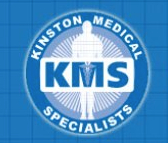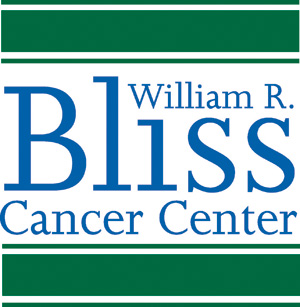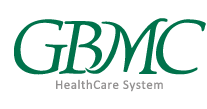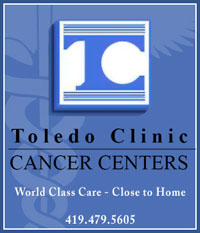Carboplatin and Paclitaxel With or Without Bevacizumab in Treating Patients With Stage III or Stage IV Ovarian Epithelial, Primary Peritoneal, or Fallopian Tube Cancer
| Status: | Completed |
|---|---|
| Conditions: | Ovarian Cancer |
| Therapuetic Areas: | Oncology |
| Healthy: | No |
| Age Range: | 18 - Any |
| Updated: | 10/19/2018 |
| Start Date: | September 2005 |
| End Date: | April 2015 |
A Phase III Trial of Carboplatin and Paclitaxel Plus Placebo Versus Carboplatin and Paclitaxel Plus Concurrent Bevacizumab (NSC # 704865) Followed by Placebo, Versus Carboplatin and Paclitaxel Plus Concurrent and Extended Bevacizumab, in Women With Newly Diagnosed, Previously Untreated, Stage III or IV Epithelial Ovarian, Primary Peritoneal or Fallopian Tube Cancer
This randomized phase III trial studies carboplatin, paclitaxel, and bevacizumab to see how
well they work compared to carboplatin, paclitaxel, and placebo in treating patients with
stage III or stage IV ovarian epithelial, primary peritoneal, or fallopian tube cancer. Drugs
used in chemotherapy, such as carboplatin and paclitaxel, work in different ways to stop the
growth of tumor cells, either by killing the cells or by stopping them from dividing.
Monoclonal antibodies, such as bevacizumab, may interfere with the ability of tumor cells to
grow and spread. It is not yet known whether carboplatin, paclitaxel, and bevacizumab are
more effective than carboplatin, paclitaxel, and placebo in treating ovarian epithelial,
primary peritoneal, or fallopian tube cancer.
well they work compared to carboplatin, paclitaxel, and placebo in treating patients with
stage III or stage IV ovarian epithelial, primary peritoneal, or fallopian tube cancer. Drugs
used in chemotherapy, such as carboplatin and paclitaxel, work in different ways to stop the
growth of tumor cells, either by killing the cells or by stopping them from dividing.
Monoclonal antibodies, such as bevacizumab, may interfere with the ability of tumor cells to
grow and spread. It is not yet known whether carboplatin, paclitaxel, and bevacizumab are
more effective than carboplatin, paclitaxel, and placebo in treating ovarian epithelial,
primary peritoneal, or fallopian tube cancer.
PRIMARY OBJECTIVE:
I. To determine if the addition of 5 concurrent cycles of bevacizumab to 6 cycles of standard
therapy (carboplatin and paclitaxel) (Arm II) increases the duration of progression-free
survival (PFS) when compared to 6 cycles of standard therapy alone (Arm I) in women with
newly diagnosed stage III (with any gross residual disease) and stage IV, epithelial ovarian,
peritoneal primary or fallopian tube cancer.
II. To determine if the addition of 5 concurrent cycles of bevacizumab plus extended
bevacizumab for 16 cycles beyond the 6 cycles of standard therapy (carboplatin and
paclitaxel) (Arm III) increases progression-free survival when compared to 6 cycles of
standard therapy (Arm I) in women with newly diagnosed stage III (with any gross residual
disease) and stage IV, epithelial ovarian, peritoneal primary or fallopian tube cancer.
SECONDARY OBJECTIVES:
I. In the event that both Arm II and Arm III regimens are superior to the Arm I regimen with
respect to progression-free survival, to determine whether the Arm III regimen prolongs
progression-free survival when compared to the Arm II regimen.
II. To determine whether the Arm II or Arm III regimen increases the duration of overall
survival when compared with the Arm I regimen.
III. To compare each of the experimental regimens to the Arm I regimen with respect to the
incidence of severe toxicities or serious adverse events.
IV. To determine the impact on Quality of Life (QOL, as measured by the Functional Assessment
of Cancer Therapy-Ovarian [FACT-O] trial outcome index [TOI]) following treatment with the
above regimens.
TERTIARY OBJECTIVES:
I. To assess the relationship between angiogenic markers and clinical outcome including tumor
response, progression-free survival and overall survival in patients randomized to standard
cytotoxic chemotherapy (paclitaxel and carboplatin) without bevacizumab, with concurrent
bevacizumab or with extended bevacizumab.
II. To assess the predictive value of a set of genes whose expression correlates with
survival of patients with stage III (with any gross residual disease) and stage IV,
epithelial ovarian, peritoneal primary or fallopian tube cancer.
III. To bank whole blood for research. IV. To determine if genetic variations in genes
associated with essential hypertension including WNK lysine deficient protein kinase 1
(WNK1), G protein-coupled receptor kinase 4 (GRK4) and kallikrein B (KLKB1) predict which
patients are likely to develop bevacizumab-induced hypertension.
OUTLINE: Patients are randomized to 1 of 3 treatment arms.
ARM I: Patients receive paclitaxel intravenously (IV) over 3 hours and carboplatin IV over 30
minutes on day 1. Beginning in course 2, patients also receive placebo IV over 30-90 minutes
on day 1. Treatment repeats every 21 days for 6 courses. Beginning in course 7, patients
receive placebo alone IV over 30-90 minutes on day 1. Treatment with placebo repeats every 21
days for up to 22 courses in the absence of disease progression or unacceptable toxicity.
ARM II: Patients receive paclitaxel and carboplatin as in arm I. Beginning in course 2,
patients also receive bevacizumab IV over 30-90 minutes on day 1. Treatment repeats every 21
days for 6 courses. Beginning in course 7, patients receive placebo alone IV over 30-90
minutes on day 1. Treatment with placebo repeats every 21 days for up to 22 courses in the
absence of disease progression or unacceptable toxicity.
ARM III: Patients receive paclitaxel and carboplatin as in arm I. Beginning in course 2,
patients also receive bevacizumab IV over 30-90 minutes on day 1. Treatment repeats every 21
days for 6 courses. Beginning in course 7, patients receive bevacizumab alone IV over 30-90
minutes on day 1. Treatment with bevacizumab repeats every 21 days for up to 22 courses in
the absence of disease progression or unacceptable toxicity.
After completion of study treatment, patients are followed up every 3 months for 2 years,
every 6 months for 3 years, and then annually thereafter.
I. To determine if the addition of 5 concurrent cycles of bevacizumab to 6 cycles of standard
therapy (carboplatin and paclitaxel) (Arm II) increases the duration of progression-free
survival (PFS) when compared to 6 cycles of standard therapy alone (Arm I) in women with
newly diagnosed stage III (with any gross residual disease) and stage IV, epithelial ovarian,
peritoneal primary or fallopian tube cancer.
II. To determine if the addition of 5 concurrent cycles of bevacizumab plus extended
bevacizumab for 16 cycles beyond the 6 cycles of standard therapy (carboplatin and
paclitaxel) (Arm III) increases progression-free survival when compared to 6 cycles of
standard therapy (Arm I) in women with newly diagnosed stage III (with any gross residual
disease) and stage IV, epithelial ovarian, peritoneal primary or fallopian tube cancer.
SECONDARY OBJECTIVES:
I. In the event that both Arm II and Arm III regimens are superior to the Arm I regimen with
respect to progression-free survival, to determine whether the Arm III regimen prolongs
progression-free survival when compared to the Arm II regimen.
II. To determine whether the Arm II or Arm III regimen increases the duration of overall
survival when compared with the Arm I regimen.
III. To compare each of the experimental regimens to the Arm I regimen with respect to the
incidence of severe toxicities or serious adverse events.
IV. To determine the impact on Quality of Life (QOL, as measured by the Functional Assessment
of Cancer Therapy-Ovarian [FACT-O] trial outcome index [TOI]) following treatment with the
above regimens.
TERTIARY OBJECTIVES:
I. To assess the relationship between angiogenic markers and clinical outcome including tumor
response, progression-free survival and overall survival in patients randomized to standard
cytotoxic chemotherapy (paclitaxel and carboplatin) without bevacizumab, with concurrent
bevacizumab or with extended bevacizumab.
II. To assess the predictive value of a set of genes whose expression correlates with
survival of patients with stage III (with any gross residual disease) and stage IV,
epithelial ovarian, peritoneal primary or fallopian tube cancer.
III. To bank whole blood for research. IV. To determine if genetic variations in genes
associated with essential hypertension including WNK lysine deficient protein kinase 1
(WNK1), G protein-coupled receptor kinase 4 (GRK4) and kallikrein B (KLKB1) predict which
patients are likely to develop bevacizumab-induced hypertension.
OUTLINE: Patients are randomized to 1 of 3 treatment arms.
ARM I: Patients receive paclitaxel intravenously (IV) over 3 hours and carboplatin IV over 30
minutes on day 1. Beginning in course 2, patients also receive placebo IV over 30-90 minutes
on day 1. Treatment repeats every 21 days for 6 courses. Beginning in course 7, patients
receive placebo alone IV over 30-90 minutes on day 1. Treatment with placebo repeats every 21
days for up to 22 courses in the absence of disease progression or unacceptable toxicity.
ARM II: Patients receive paclitaxel and carboplatin as in arm I. Beginning in course 2,
patients also receive bevacizumab IV over 30-90 minutes on day 1. Treatment repeats every 21
days for 6 courses. Beginning in course 7, patients receive placebo alone IV over 30-90
minutes on day 1. Treatment with placebo repeats every 21 days for up to 22 courses in the
absence of disease progression or unacceptable toxicity.
ARM III: Patients receive paclitaxel and carboplatin as in arm I. Beginning in course 2,
patients also receive bevacizumab IV over 30-90 minutes on day 1. Treatment repeats every 21
days for 6 courses. Beginning in course 7, patients receive bevacizumab alone IV over 30-90
minutes on day 1. Treatment with bevacizumab repeats every 21 days for up to 22 courses in
the absence of disease progression or unacceptable toxicity.
After completion of study treatment, patients are followed up every 3 months for 2 years,
every 6 months for 3 years, and then annually thereafter.
Inclusion Criteria:
- Patients with a histologic diagnosis of epithelial ovarian cancer, peritoneal primary
carcinoma or fallopian tube cancer; International Federation of Gynecology and
Obstetrics (FIGO) stage III with any gross (macroscopic or palpable) residual disease
or FIGO stage IV, defined surgically at the completion of initial abdominal surgery
and with appropriate tissue available for histologic evaluation; the minimum surgery
required was an abdominal surgery providing tissue for histologic evaluation and
establishing and documenting the primary site and stage, as well as a maximal effort
at tumor debulking; if additional surgery was performed, it should have been in
accordance with appropriate surgery for ovarian or peritoneal carcinoma described in
the Gynecologic Oncology Group (GOG) Surgical Procedures Manual; however, the surgeon
is not required to have performed all of the items contained in this section of the
GOG Surgical Procedures Manual; those patients with stage III cancer in which the
largest maximal diameter of any residual tumor implant at the completion of this
initial surgery is no greater than 1 cm will be defined as "optimal;" all others will
be defined as "suboptimal;" measurable disease on post-operative imaging studies is
not required for eligibility
- Patients with the following histologic epithelial cell types are eligible: serous
adenocarcinoma, endometrioid adenocarcinoma, mucinous adenocarcinoma, undifferentiated
carcinoma, clear cell adenocarcinoma, mixed epithelial carcinoma, transitional cell
carcinoma, malignant Brenner's Tumor, or adenocarcinoma not otherwise specified
(N.O.S.); however, the histologic features of the tumor must be compatible with a
primary Müllerian epithelial adenocarcinoma; if doubt exists, it is recommended that
the investigator should have the slides reviewed by an independent pathologist or, if
necessary, the Pathology Co-Chair, prior to entry; patients may have co-existing
fallopian tube carcinoma in-situ so long as the primary origin of invasive tumor is
ovarian, peritoneal or fallopian tube
- Absolute neutrophil count (ANC) greater than or equal to 1,500/µl equivalent to Common
Toxicity Criteria for Adverse Events version (v)3.0 (CTCAE) grade 1; this ANC cannot
have been induced or supported by granulocyte colony stimulating factors
- Platelets greater than or equal to 100,000/µl; (CTCAE grade 0-1)
- Creatinine =< 1.5 x institutional upper limit normal (ULN), CTCAE grade 1
- Bilirubin less than or equal to 1.5 x ULN (CTCAE grade 1)
- Serum glutamic oxaloacetic transaminase (SGOT) and alkaline phosphatase less than or
equal to 2.5 x ULN (CTCAE grade 1)
- Neuropathy (sensory and motor) less than or equal to CTCAE grade 1
- Prothrombin time (PT) such that international normalized ratio (INR) is =< 1.5 (or an
in-range INR, usually between 2 and 3, if a patient is on a stable dose of therapeutic
warfarin for management of venous thrombosis including pulmonary thrombo-embolus) and
a partial thromboplastin time (PTT) < 1.2 times the upper limit of normal
- Patients with a GOG Performance Status of 0, 1, or 2
- Patients must be entered between 1 and 12 weeks after initial surgery performed for
the combined purpose of diagnosis, staging and cytoreduction
- Patients with measurable and non-measurable disease are eligible; patients may or may
not have cancer-related symptoms
- Patients who have met the pre-entry requirements
- An approved informed consent and authorization permitting release of personal health
information must be signed by the patient or guardian
- Patients in this trial may receive ovarian estrogen +/- progestin replacement therapy
as indicated at the lowest effective dose(s) for control of menopausal symptoms at any
time, but not progestins for management of anorexia while on protocol directed therapy
or prior to disease progression
Exclusion Criteria:
- Patients with a current diagnosis of borderline epithelial ovarian tumor (formerly
"tumors of low malignant potential") or recurrent invasive epithelial ovarian, primary
peritoneal or fallopian tube cancer treated with surgery only (such as patients with
stage Ia or Ib low grade epithelial ovarian or fallopian tube cancers) are not
eligible; patients with a prior diagnosis of a borderline tumor that was surgically
resected and who subsequently develop an unrelated, new invasive epithelial ovarian,
peritoneal primary or fallopian tube cancer are eligible, provided that they have not
received prior chemotherapy for any ovarian tumor
- Patients who have received prior radiotherapy to any portion of the abdominal cavity
or pelvis are excluded; prior radiation for localized cancer of the breast, head and
neck, or skin is permitted, provided that it was completed more than three years prior
to registration, and the patient remains free of recurrent or metastatic disease
- Patients who have received prior chemotherapy for any abdominal or pelvic tumor
including neo-adjuvant chemotherapy for their ovarian, primary peritoneal or fallopian
tube cancer are excluded; patients may have received prior adjuvant chemotherapy for
localized breast cancer, provided that it was completed more than three years prior to
registration, and that the patient remains free of recurrent or metastatic disease
- Patients who have received any targeted therapy (including but not limited to
vaccines, antibodies, tyrosine kinase inhibitors) or hormonal therapy for management
of their epithelial ovarian or peritoneal primary cancer
- Patients with synchronous primary endometrial cancer, or a past history of primary
endometrial cancer, are excluded, unless all of the following conditions are met:
stage not greater than I-B; no more than superficial myometrial invasion, without
vascular or lymphatic invasion; no poorly differentiated subtypes, including papillary
serous, clear cell or other FIGO grade 3 lesions
- With the exception of non-melanoma skin cancer and other specific malignancies as
noted above, patients with other invasive malignancies who had (or have) any evidence
of the other cancer present within the last five years or whose previous cancer
treatment contraindicates this protocol therapy are excluded
- Patients with acute hepatitis or active infection that requires parenteral antibiotics
- Patients with serious non-healing wound, ulcer, or bone fracture; this includes
history of abdominal fistula, gastrointestinal perforation or intra-abdominal abscess
within 28 days; patients with granulating incisions healing by secondary intention
with no evidence of fascial dehiscence or infection are eligible but require weekly
wound examinations
- Patients with active bleeding or pathologic conditions that carry high risk of
bleeding, such as known bleeding disorder, coagulopathy, or tumor involving major
vessels
- Patients with history or evidence upon physical examination of central nervous system
(CNS) disease, including primary brain tumor, seizures not controlled with standard
medical therapy, any brain metastases, or history of cerebrovascular accident (CVA,
stroke), transient ischemic attack (TIA) or subarachnoid hemorrhage within six months
of the first date of treatment on this study
- Patients with clinically significant cardiovascular disease; this includes:
- Uncontrolled hypertension, defined as systolic > 150 mm Hg or diastolic > 90 mm Hg
- Myocardial infarction or unstable angina < 6 months prior to registration
- New York Heart Association (NYHA) grade II or greater congestive heart failure
- Serious cardiac arrhythmia requiring medication; this does not include asymptomatic,
atrial fibrillation with controlled ventricular rate
- CTCAE grade 2 or greater peripheral vascular disease (at least brief (< 24 hrs)
episodes of ischemia managed non-surgically and without permanent deficit)
- History of CVA within six months
- Patients with known hypersensitivity to Chinese hamster ovary cell products or other
recombinant human or humanized antibodies
- Patients with clinically significant proteinuria; urine protein should be screened by
urine protein-creatinine ratio (UPCR); the UPCR has been found to correlate directly
with the amount of protein excreted in a 24 hour urine collection; specifically, a
UPCR of 1.0 is equivalent to 1.0 gram of protein in a 24 hour urine collection; obtain
at least 4 ml of a random urine sample in a sterile container (does not have to be a
24 hour urine); send sample to lab with request for urine protein and creatinine
levels [separate requests]; the lab will measure protein concentration (mg/dL) and
creatinine concentration (mg/dL); the UPCR is derived as follows: protein
concentration (mg/dL)/creatinine (mg/dL); patients must have a UPCR < 1.0 to allow
participation in the study
- Patients with or with anticipation of invasive procedures as defined below:
- Major surgical procedure, open biopsy or significant traumatic injury within 28 days
prior to the first date of bevacizumab/placebo therapy (cycle 2)
- Major surgical procedure anticipated during the course of the study; this includes,
but is not limited to abdominal surgery (laparotomy or laparoscopy) prior to disease
progression, such as colostomy or enterostomy reversal, interval or secondary
cytoreductive surgery, or second look surgery; please consult with the study chair
prior to patient entry for any questions related to the classification of surgical
procedures
- Core biopsy, within 7 days prior to the first date of bevacizumab/placebo therapy
(cycle 2)
- Patients with GOG Performance Grade of 3 or 4
- Patients who are pregnant or nursing; bevacizumab should not be administered to
nursing women; patients of childbearing potential must agree to use contraceptive
measures during study therapy and for at least six months after completion of
bevacizumab therapy
- Patients who have received prior therapy with any anti-vascular endothelial growth
factor (VEGF) drug, including bevacizumab
- Patients with clinical symptoms or signs of gastrointestinal obstruction and who
require parenteral hydration and/or nutrition
- Patients with medical history or conditions not otherwise previously specified which
in the opinion of the investigator should exclude participation in this study; the
investigator should feel free to consult the study chair or study co-chairs for
uncertainty in this regard
We found this trial at
614
sites
Beebe Medical Center Located in beautiful historic Lewes, Delaware, near Rehoboth Beach, Beebe Healthcare offers...
Click here to add this to my saved trials
1201 Camino de Salud Northeast
Albuquerque, New Mexico 87131
Albuquerque, New Mexico 87131
(505) 272-4946

University of New Mexico Cancer Center It’s been 40 years since the New Mexico State...
Click here to add this to my saved trials
Roswell Park Cancer Institute Welcome to Roswell Park Cancer Institute (RPCI), America's first cancer center...
Click here to add this to my saved trials
University of North Carolina at Chapel Hill Carolina’s vibrant people and programs attest to the...
Click here to add this to my saved trials
1300 Jefferson Park Avenue
Charlottesville, Virginia 22908
Charlottesville, Virginia 22908
434-243-6784

University of Virginia Cancer Center We are fortunate in having state of the art clinical...
Click here to add this to my saved trials
Hurley Medical Center From its founding in 1908, Hurley Medical Center has devoted itself to...
Click here to add this to my saved trials
Holy Cross Hospital While spirituality plays an essential role in the way that we minister...
Click here to add this to my saved trials
Click here to add this to my saved trials
Lee Memorial Health System Our origins can be traced to the Fall of 1916 when...
Click here to add this to my saved trials
Brooke Army Medical Center Brooke Army Medical Center (BAMC) is the Flagship of Army Medicine!...
Click here to add this to my saved trials
University of Texas Medical Branch Established in 1891 as the University of Texas Medical Department,...
Click here to add this to my saved trials
Click here to add this to my saved trials
Bronson Methodist Hospital Our healthcare system serves patients and families throughout southwest Michigan and northern...
Click here to add this to my saved trials
West Michigan Cancer Center In 1994, Borgess Health Alliance and Bronson Healthcare Group opened the...
Click here to add this to my saved trials
Kinston Medical Specialists offers comprehensive medical services for all ages. Whether it’s a case of...
Click here to add this to my saved trials
529 West Markham Street
Little Rock, Arkansas 72205
Little Rock, Arkansas 72205
(501) 686-7000
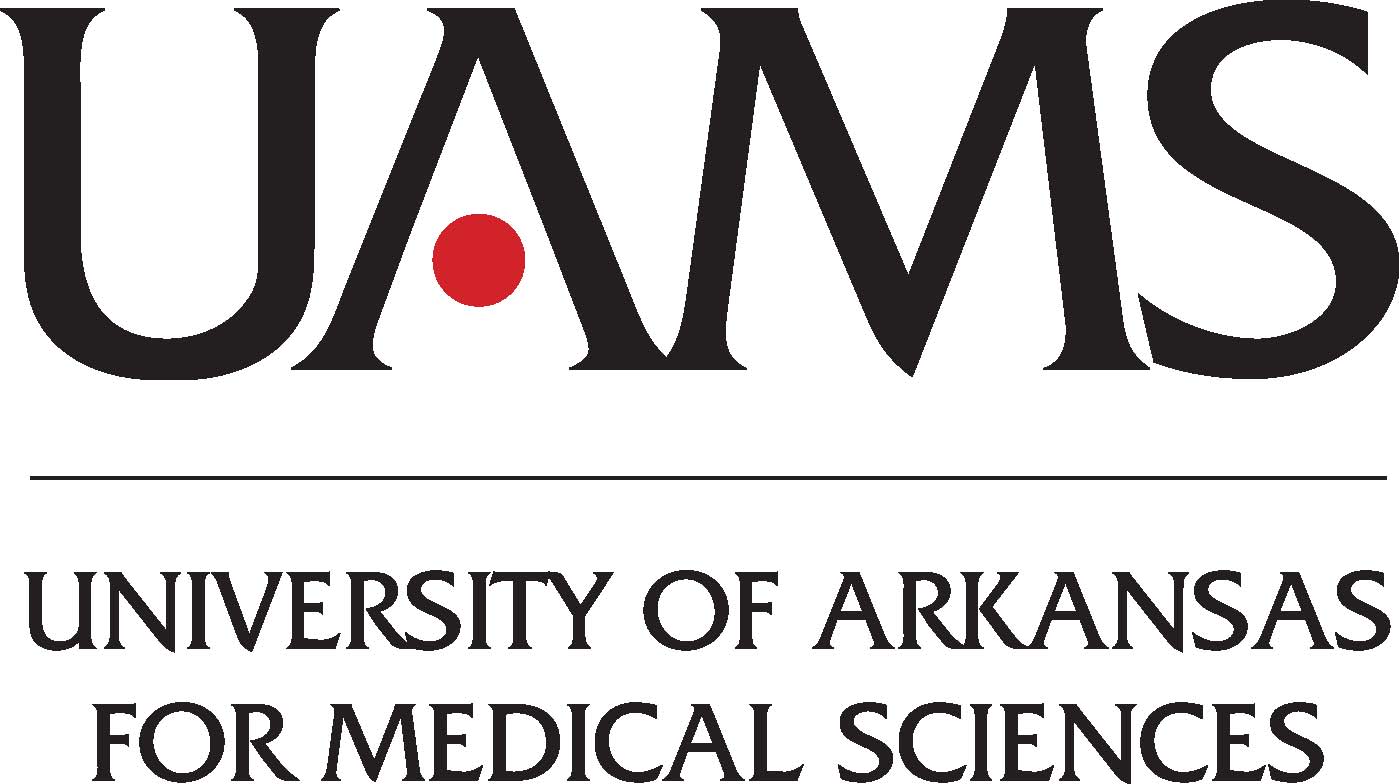
University of Arkansas for Medical Sciences The University of Arkansas for Medical Sciences (UAMS) in...
Click here to add this to my saved trials
Cedars Sinai Med Ctr Cedars-Sinai is known for providing the highest quality patient care. Our...
Click here to add this to my saved trials
North Shore University Hospital North Shore-LIJ Health System includes 16 award-winning hospitals and nearly 400...
Click here to add this to my saved trials
Mount Sinai Med Ctr Founded in 1852, The Mount Sinai Hospital is a 1,171-bed, tertiary-care...
Click here to add this to my saved trials
UMDNJ-New Jersey Medical School NJMS is committed to educating humanistic, culturally competent physicians who will...
Click here to add this to my saved trials
3181 Southwest Sam Jackson Park Road
Portland, Oregon 97239
Portland, Oregon 97239
503 494-8311

Oregon Health and Science University In 1887, the inaugural class of the University of Oregon...
Click here to add this to my saved trials
401 College Street
Richmond, Virginia 23298
Richmond, Virginia 23298
(804) 828-0450

Virginia Commonwealth University Massey Cancer Center Founded in 1974, VCU Massey Cancer Center is a...
Click here to add this to my saved trials
1100 Fairview Avenue North
Seattle, Washington 98109
Seattle, Washington 98109
206-667-4584

Fred Hutchinson Cancer Research Center/University of Washington Cancer Consortium The Fred Hutchinson/University of Washington Cancer...
Click here to add this to my saved trials
Click here to add this to my saved trials
Abington Memorial Hospital Abington Memorial Hospital (AMH) is a 665-bed, regional referral center and teaching...
Click here to add this to my saved trials
Click here to add this to my saved trials
Bixby Medical Center ProMedica's Mission is to improve your health and well-being. Which is why,...
Click here to add this to my saved trials
Click here to add this to my saved trials
Akron General Medical Center It
Click here to add this to my saved trials
Click here to add this to my saved trials
Click here to add this to my saved trials
Click here to add this to my saved trials
Click here to add this to my saved trials
Click here to add this to my saved trials
Click here to add this to my saved trials
Click here to add this to my saved trials
McFarland Clinic PC-William R Bliss Cancer Center The William R. Bliss Cancer Center at Mary...
Click here to add this to my saved trials
Click here to add this to my saved trials
Saint Joseph Mercy Hospital St. Joseph Mercy Ann Arbor Hospital is a 537-bed teaching hospital...
Click here to add this to my saved trials
Click here to add this to my saved trials
1500 East Medical Center Drive
Ann Arbor, Michigan 48109
Ann Arbor, Michigan 48109
800-865-1125

University of Michigan Comprehensive Cancer Center The U-M Comprehensive Cancer Center's mission is the conquest...
Click here to add this to my saved trials
Click here to add this to my saved trials
Click here to add this to my saved trials
Click here to add this to my saved trials
Randolph Hospital Since 1932, Randolph Hospital has been fortunate to employ dedicated and loyal personnel...
Click here to add this to my saved trials
Click here to add this to my saved trials
Click here to add this to my saved trials
Click here to add this to my saved trials
Click here to add this to my saved trials
Click here to add this to my saved trials
Click here to add this to my saved trials
Medical Center of Aurora At The Medical Center of Aurora and Centennial Medical Plaza patients...
Click here to add this to my saved trials
Rush - Copley Medical Center Rush-Copley is proud to be the leading provider of health...
Click here to add this to my saved trials
Click here to add this to my saved trials
Greater Baltimore Medical Center The 255-bed medical center (acute and sub-acute care) is located on...
Click here to add this to my saved trials
401 North Broadway
Baltimore, Maryland 21287
Baltimore, Maryland 21287
410-955-5000

Johns Hopkins University-Sidney Kimmel Cancer Center The name Johns Hopkins has become synonymous with excellence...
Click here to add this to my saved trials
Eastern Maine Medical Center Located in Bangor, Eastern Maine Medical Center (EMMC) serves communities throughout...
Click here to add this to my saved trials
Bronson Battle Creek As a proud member of the Battle Creek community, we believe everyone...
Click here to add this to my saved trials
Click here to add this to my saved trials
Click here to add this to my saved trials
Click here to add this to my saved trials
Montana Cancer Consortium CCOP The Montana Cancer Consortium is a nonprofit organization whose mission is...
Click here to add this to my saved trials
Click here to add this to my saved trials
Click here to add this to my saved trials
Click here to add this to my saved trials
Click here to add this to my saved trials
Saint Vincent Healthcare The Sisters of Charity of Leavenworth, Kansas, founded St. Vincent Healthcare in...
Click here to add this to my saved trials
Click here to add this to my saved trials
Mid Dakota Clinic, PC We're your family clinic, with the doctors you know and trust...
Click here to add this to my saved trials
Saint Alexius Medical Center St. Alexius Medical Center is a 306-bed, full-service, acute care medical...
Click here to add this to my saved trials
Sanford Bismarck Medical Center Whether your stay in our hospital is one day for same...
Click here to add this to my saved trials
Click here to add this to my saved trials
Saint Luke's Mountain States Tumor Institute For more than 100 years, St. Luke
Click here to add this to my saved trials
Boulder Community Hospital Founded in 1922 as a community-owned and operated not-for-profit hospital, Boulder Community...
Click here to add this to my saved trials
Toledo Clinic Cancer Centers-Bowling Green Our doctors evaluate and make recommendations regarding cancer treatment for...
Click here to add this to my saved trials
Bozeman Deaconess Cancer Center Bozeman Deaconess Cancer Center provides the latest cancer technologies and treatment...
Click here to add this to my saved trials
Bozeman Deaconess Hospital Bozeman Deaconess Hospital is a Joint Commission certified, licensed Level III trauma...
Click here to add this to my saved trials
Click here to add this to my saved trials
Click here to add this to my saved trials
Click here to add this to my saved trials
Bryn Mawr Hospital Bryn Mawr Hospital, a nationally recognized community teaching hospital, is conveniently located...
Click here to add this to my saved trials
Click here to add this to my saved trials
Click here to add this to my saved trials
Click here to add this to my saved trials
Fairview Ridges Hospital Fairview Ridges Hospital is a 150-bed, Level III Trauma Care facility, offering...
Click here to add this to my saved trials
400 South Clark Street
Butte, Montana 59701
Butte, Montana 59701
406-723-2500

Saint James Community Hospital and Cancer Treatment Center St. James Healthcare has played an important...
Click here to add this to my saved trials
Click here to add this to my saved trials
Click here to add this to my saved trials
Aultman Health Foundation The Aultman Foundation will raise and administer funds in order to support...
Click here to add this to my saved trials
Click here to add this to my saved trials
Saint Francis Medical Center Saint Francis Medical Center is a 282-bed facility serving more than...
Click here to add this to my saved trials
Memorial Hospital Memorial Hospital is a vital force in establishing and maintaining the well-being of...
Click here to add this to my saved trials
Click here to add this to my saved trials
East Bay Radiation Oncology Center East Bay Radiation Oncology Center offers superior medical and technical...
Click here to add this to my saved trials
20055 Lake Chabot Rd #130
Castro Valley, California 94546
Castro Valley, California 94546
(510) 888-0657

Valley Medical Oncology Consultants - Castro Valley Valley Medical Oncology Consultants (VMOC) has been helping...
Click here to add this to my saved trials
Sandra L. Maxwell Cancer Center The Huntsman-Intermountain Cancer Center at Valley View Medical Center in...
Click here to add this to my saved trials
Click here to add this to my saved trials
Click here to add this to my saved trials
Click here to add this to my saved trials
Click here to add this to my saved trials
Cancer Center of Kansas, PA - Chanute Dr. H.E. Hynes founded Cancer Center of Kansas,...
Click here to add this to my saved trials










